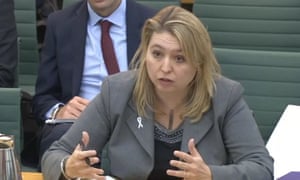
A press regulator funded by Max Mosley has gained recognition as a state-backed watchdog, even though no national newspapers are among its members.
The decision by the Press Recognition Panel to recognise Impress raises the possibility that newspapers that do not join could face legal penalties under a new law that would force them to pay costs for both sides following any complaint.
But it was unclear whether the government would trigger section 40 of the Crime and Courts Act 2013 that impose the double costs rule amid suggestions that ministers would leave that aside following heavy lobbying from the industry.
However, Impress’s ability to operate effectively remains in doubt with no major newspapers currently signed up and the costs part of the legislation on hold.
The PRP considered a number of objections to Impress’s recognition, including concerns about its independence from former F1 tycoon Mosley, who has provided £3.8m towards the organisation’s running costs. Mosley funds Impress via two charities, a system which the PRP decided was sufficient to ensure it remained independent.
The PRP’s six-person board agreed unanimously that Impress met each of the 23 criteria set out under the royal charter.
During the meeting, board member Harry Cayton said the PRP had to interpret the position on funding in the absence of any specific exclusions for private individuals.
“The implications from the charter are the expectation that it will be the industry that will fund a regulator. But there is nothing that excludes other possibilities,” he said.
The PRP also decided that the lack of support from newspapers did not mean Impress could not be recognised and sign up titles once it was up and running.
It also dismissed claims made in submissions from the newspaper industry that making newspapers pay both sides’ costs, and the charter itself, were incompatible with the European convention on human rights, saying they were outside its remit and a matter for the culture secretary.
Cayton added: “I think it’s appropriate to acknowledge there are many people in the press who are concerned, but these are matters that relate to the charter, to the entire scheme, rather than the decision we have to make.”

The framework for state-backed press regulation was set up in 2013 in the wake of the Leveson inquiry. However, the UK’s newspapers have opposed any attempt to force them to sign up, arguing that it would represent government interference in a free press.
Most major newspapers have their complaints handled by Ipso, which has said it will not seek recognition from the Press Recognition Panel. Some others, such as the Guardian and the Financial Times, have their own system of regulation.
The chair of Impress, Walter Merrick, said the recognition was the “first step in a new era of building trust between journalists and the public that has been lacking for some time.”
Asked about the costs rules contained in section 40, he said it was “part of the package of arrangements that were put in place and which we were aware were there as part of this package when we set up Impress.
“Certainly we had legitimate expectations that the whole package would be brought into being. That the charter would be there, that the PRP would be there. That sections of the Crime and Courts Act would be there.”
Without the section 40 legislation on costs in place, the incentives for newspapers to join Impress remain weak.
So-called “cost-shifting”, which applies to newspapers that have not signed up to a regulator, has been vigorously opposed by the industry, which views it as a threat to press freedom.

The official line from the Department for Culture, Media and Sport is that section 40 is still being considered. Culture secretary Karen Bradley told a hearing of the culture, media and sport select committee on Monday that she would not “rule it out at some point in the future”.
The shadow culture secretary, Tom Watson, called on Bradley to say what her plans were for section 40.
“Labour has consistently called for the Leveson recommendations to be implemented in full. A new system of independent self-regulation was agreed by the three main political parties in 2013 following consultation with victims of press intrusion and the promises made to them at the time should be honoured.
“The culture secretary must now urgently clarify her position on section 40 and tell us whether she will enact the legislation that would allow independent self-regulation to succeed.”
However, the Times has reported that section 40 will not be implemented and proponents of press regulation are increasingly concerned that the government has no intention of passing it into law.
The News Media Association, which represents UK national and regional newspapers, said it was disappointed in the decision to recognise Impress, but welcomed the reports section 40 would be dropped.
Describing Impress as “a regulator funded by Max Mosley and set up in order to trigger punitive costs sanctions against Britain’s press”, NMA deputy chief executive Lynne Anderson said: “We welcome reports that the government has decided to pull back from implementing section 40 of the Crime and Courts Act, which would inhibit a free press and have a crippling effect on regional and local newspapers.
“Over 90% of UK newspapers and magazines – over 1,500 print and 1,100 online titles – have voluntarily signed up to a system of self-regulation under Ipso which has been found to be both effective and independent of the industry. A small number of micro-businesses and multi-author blogs have been persuaded to join Impress quite unnecessarily, given they are excluded from the definition of relevant publisher. Not a single significant national or regional newspaper or magazine has signed up to the state-sponsored system of regulation under the PRP.”